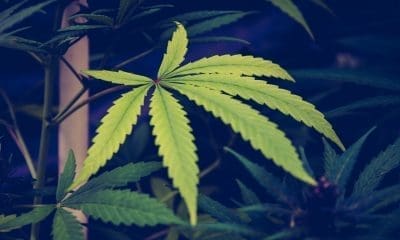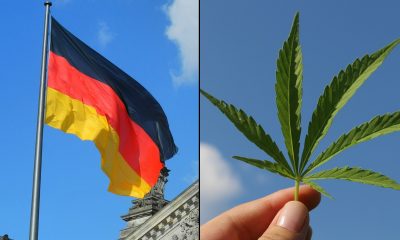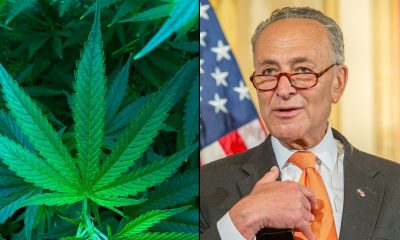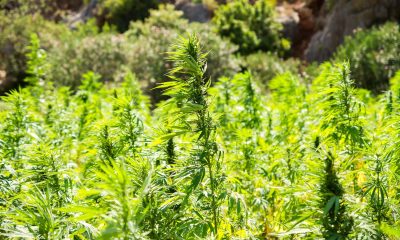Politics
Washington Voters Could See Drug Decriminalization And Treatment Initiative On November Ballot
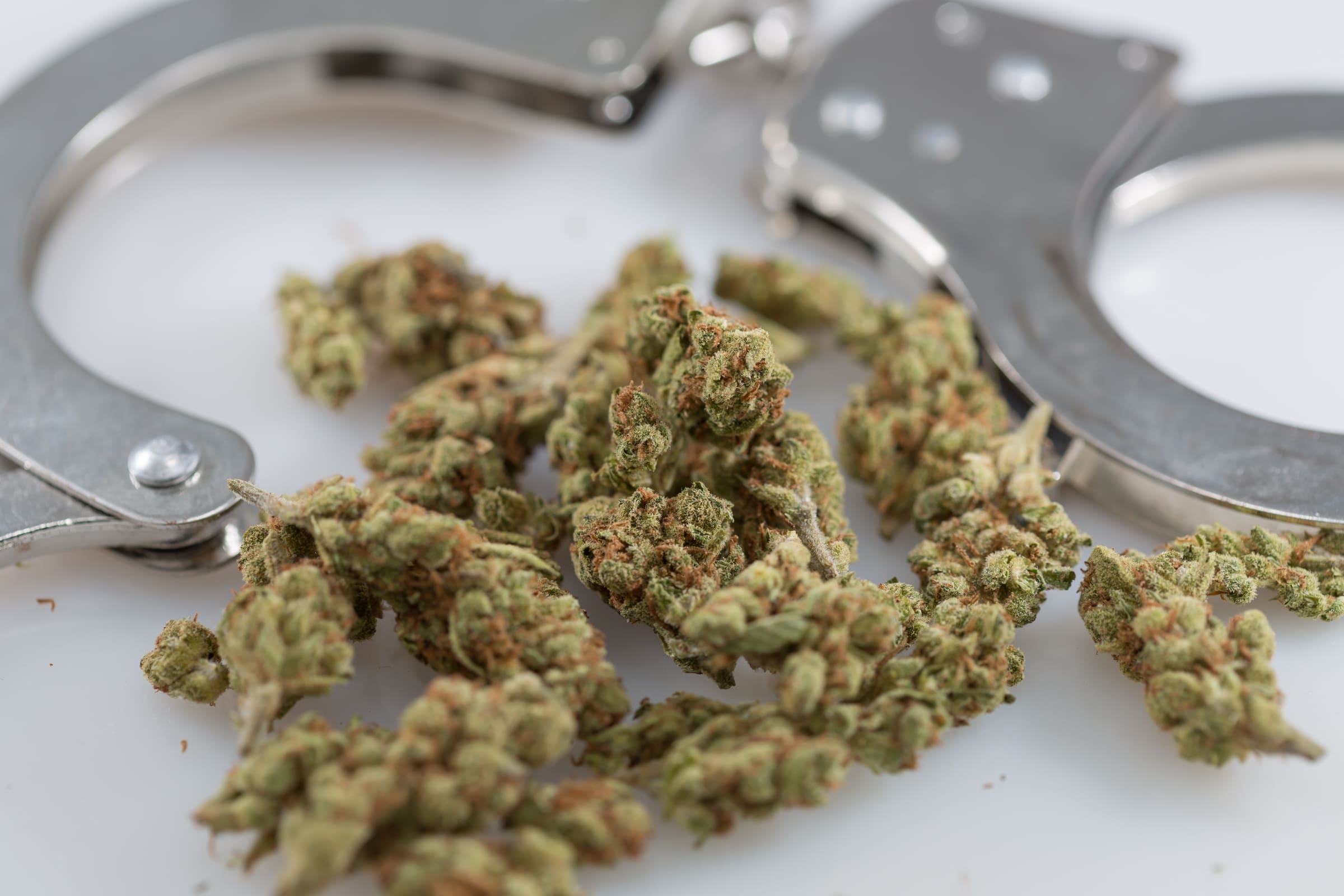
Activists in Washington State are working to place an initiative to decriminalize drug possession and expand access to treatment services on the November ballot.
At a time when multiple drug policy reform campaigns in states across the country have suspended signature gathering amid the coronavirus outbreak, ACLU of Washington says they remain determined to qualify Initiative 1715, which would make possession of illegal substances for personal use a civil infraction that does not carry the threat of jail time.
People who police encounter possessing illicit drugs would be referred to a mandatory service assessment under the proposal, with the intent being to have them screened for a substance use disorder within 72 hours of the citation. The measure—titled the Substance Use Disorder Treatment, Recovery and Education Act—would also provide a means for individuals previously convicted of drug offenses covered in the act to petition courts to have their records vacated.
Fees associated with the citation would be waived upon completion of the service assessment.
The new Treatment First Washington campaign is also hoping to expand the state’s drug treatment programs, and it plans to use some existing tax revenue from legal marijuana sales to accomplish that. A similar effort is underway in neighboring Oregon, where activists said last month that they’ve been forced to temporarily end in-person signature collection due to the pandemic.
ACLU of Washington isn’t oblivious to the impact current social distancing measures could have on their prospects, but they’re hoping to dedicate all of June to signature gathering, as Crosscut first reported. Alison Holcomb, political director of the group and author of the state’s successful 2012 cannabis legalization ballot initiative, said they will continue to reevaluate the situation over the weeks to come.
“The essence of 1715 is to stop arresting and jailing people for substance use disorders,” she said. “This is a public health issue. Let’s have the law say that.”
Marijuana Moment reached out to Holcomb and the campaign for additional information about the initiative, which was filed on March 9, but representatives did not respond by the time of publication.
Text of the measure, which had its ballot title approved on April 10, states that the intent is to “to expand availability of and facilitate access to effective, health-based approaches to the substance use disorder crisis facing our state, funded by existing marijuana taxes and health insurance, and to direct people with substance use disorder to treatment and recovery services through changes to laws criminalizing drug use.”
If voters approve the measure in November, an advisory group consisting of health experts and representatives from various state agencies would be established in order to determine the maximum amount of illicit drugs that could be considered possession for personal use under the new law. The panel would have to submit its recommendations by September 1, 2022. Decriminalization would then take effect that December.
The proposal’s intent section says that the “people find that a significant percentage of people with substance use disorders in our state are not receiving necessary services,” and that’s due in part to “gaps between the service needs and available system capacities, and gaps in information about substance use disorders and how to get help.”
Further, the “people also find that treating substance use like a crime, arresting and incarcerating people for personal use offenses, makes matters worse by disrupting and further destabilizing their lives.”
Here’s how the measure would appear on the ballot:
“This measure would direct some marijuana tax revenue to treatment, training, and public education; decriminalize and require service assessments for certain personal-use drug offenses; facilitate vacating drug-related convictions; and amend related law.
Should this measure be enacted into law? Yes [ ] No [ ]”
Its summary reads as:
“This measure would make certain offenses for possession of drugs and use of drug paraphernalia civil infractions if they involve personal-use amounts; refer persons cited for mandatory service assessments; direct some marijuana taxes to treatment and recovery services, law enforcement training, and public education; facilitate vacation of certain drug-related convictions; and exempt certain substance use related personal information from public disclosure. State agencies would determine personal-use amounts and oversee expansion of substance use disorder treatment.”
The group estimated that the cost of increasing access to substance misuse treatment and promoting a public education campaign will be about $135 million annually, in addition to administrative implementation costs.
To qualify, the campaign needs to collect 259,622 valid signatures from voters and submit them by July 2, leaving advocates little wiggle room amid the current health crisis. Holcomb of ACLU of Washington said that if they can overcome those logistical challenges, they’re optimistic based on internal polling that voters will support it. The group also conducted focus groups consisting of swing voters that signaled the initiative would be successful if it qualifies, according to Crosscut.
So far, Treatment First Washington has reported receiving an initial $2,225 contribution from the state ACLU chapter, and its treasurer is strategist Jason Bennett.
The other decriminalization campaign in neighboring Oregon said that while they’re suspending signature gathering for the time being, they’re close to meeting their goal and need about 8,000 more submissions to safely make the ballot.
It remains to be seen when social distancing orders will be loosened or businesses reopened. That uncertainty, coupled with fast-approaching deadlines, has derailed numerous drug policy reform efforts across the country.
Oregon activists for separate initiative to legalize psilocybin for therapeutic purposes have suspended in-person campaign events amid the pandemic.
California activists for campaigns to amend the state’s legal cannabis program and legalize psilocybin mushrooms are asking for a digital signature option.
In Washington, D.C., advocates for a measure to decriminalize psychedelics asked the mayor and local lawmakers to accept online signatures for their ballot petition.
An effort to legalize medical cannabis in Nebraska is facing similar signature gathering challenges. And in Missouri, an adult-use marijuana legalization campaign is officially over for the year due to the health crisis.
Idaho activists announced that they are suspending their ballot campaign to legalize medical cannabis, though they are still “focusing on distributing petitions through online download at IdahoCann.co and encouraging every volunteer who has downloaded a petition to get them turned in to their county clerk’s office by mail, regardless of how many signatures they have collected.”
In Arizona, a legalization campaign is petitioning the state Supreme Court to instruct the secretary of state to allow individuals to sign ballot petitions digitally using an existing electronic system that is currently reserved for individual candidates seeking public office.
North Dakota advocates said earlier this month that they are suspending their campaign to put marijuana legalization on the November ballot due to the coronavirus outbreak.
In New York, Gov. Andrew Cuomo (D) conceded that the legalization push in the legislature is “effectively over” for 2020. He also said on Saturday that the policy change may prove too complicated for lawmakers to take up remotely via video conferencing.




